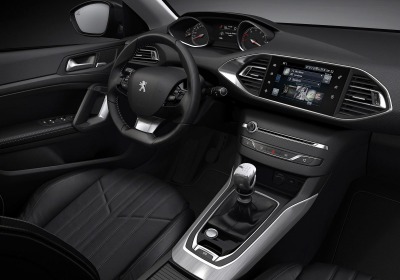Gilles Vidal: innovative materials key to Peugeot's future
Thu, 15 May 2014Future Peugeots will be defined by their use of materials in a bid to shift the brand upmarket, according to design director Gilles Vidal. Raw, unprocessed materials, he says, will not only prove more ecologically sound, but also more engaging. And his plans don't stop there.
We caught up with Vidal just after he stepped off the launch stage of the the Peugeot Exalt concept at the Beijing motor show to discuss his strategy.
"Peugeot wants to move upwards but in a reasonable kind of way," he says. "There's something at stake with mainstream brands in terms of affordability and how desirable you can be compared to premium brands."
Of course 'premiumness' is the vision of most mainstream brands, but Peugeot – indeed the PSA group as a whole – has a resurgent confidence and newfound direction following a very shaky few years, so its optimism seems more convincing than most.
The main message of its most recent advanced designs is one of material, specifically the use of very raw, non-processed materials such as felt and compressed-newspaper wood. "It's very basic, very raw, therefore very quick to process and build and very easy to recycle at the other end. So if we push the environmental approach of the materials, we think this should be our approach to premium," says Vidal.
It's no coincidence that the Exalt shares the same coupe franche diagonal material change as both the Onyx supercar and the range of furniture the Peugeot Lab displayed at this year's Milan Design Week. While the Exalt features a body made of hand-beaten mild steel, juxtaposed with a purple tail of (synthesized) dimpled shark skin, the Lab's Onyx Sofa (not to be confused with the concept car of the same name) mixes Volvic volcanic lava stone and carbon fiber.
"There are a couple of reasons behind this juxtaposition of materials," explains Vidal. "The first is perhaps a little philosophical, but is a global trend in society – we are running after technologies and yet they are obsolete the day you buy them. Society will need to rest a bit, to go back to timeless, natural materials. This sofa is about this. The carbon is super high-tech and moving forward very quickly, and the stone has been around for a few million years and is talking about the reassurance people need to have about timeless, natural things."
And, while it's unlikely Peugeot will start making cars of rock any time soon, there's a link between the use of materials in their natural form and the oxidization of the Onyx's copper fenders and the Exalt's bodywork – the element of randomness that's so counter-intuitive in the hyper-controlled world of car design.
"We are thinking about randomly-generated surfacing, maybe with an algorithm to control it somehow and yet let it go on its own," says Vidal. "It's perfectly nice [to not be in control] and you can start by giving the first push. We're thinking about that not only for patterns or 3D décor, but even for an exterior body. Why not? You have factories with 3D printers and you can actually create it because with stamping machines for metal maybe there's a limit."
Of course the use of new materials will first appear inside the production cars: "I can't tell exactly how, but we are working on that for production and in 2016 and 17 some cars will come out with amazing materials on the interior especially."
For Vidal, the interior must be all about organization and rationality: "For us there are three main parts of the body when you are driving – the bottom part that feels the car. You feel it with your ass and in a Peugeot you need to feel you are in the car and you are well integrated. Then the upper body controls the level where the hands naturally fall – all the tactile functions. Then the level of the eyes with the gauge pack and of course the windscreen. The 308 already goes some way towards this, but the next production cars will be much closer."
The extent to which these techniques and materials filters through to production cars remains to be seen, but there's definitely a sense that, if it wants to fulfill its upwardly-mobile dreams, Peugeot needs to think smart.
Relates articles:
Show Review: Salone del Mobile 2014
Beijing Auto Show 2014 – Trends and Overview
By Owen Ready

